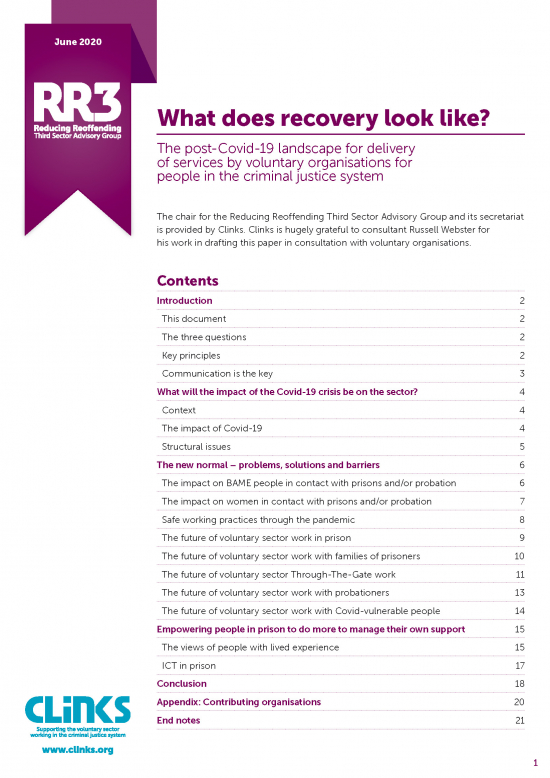
What does recovery look like?
The post-Covid-19 landscape for delivery of services by voluntary organisations for people in the criminal justice system
This paper, produced by the Reducing Reoffending Third Sector Advisory Group (RR3), sets out how the government and the voluntary sector can best work together to respond to the challenges posed to the long-term delivery of voluntary sector services in the context of Covid-19.
The report highlights six key principles as to how we can create a fairer and more effective post-pandemic criminal justice system:
- A full and equal partnership between the criminal justice voluntary sector and the Ministry of Justice (MoJ) and HM Prisons and Probation Service (HMPPS), which enables all of us to act as critically constructive friends.
- Our belief in the importance of transparency on both sides.
- The importance that both the emergency responses to Covid-19 and the construction of a new normal within the criminal justice system that reflects the detailed and continuing input of people with lived experience of that system.
- The importance of a holistic approach across government departments and sectors, particularly around issues relating to physical and mental health, employment, benefits and housing.
- Consistency across the prison estate and the national probation landscape.
- Recovery is an opportunity to learn how to make the system work better for the men, women and children it works with.
The RR3 is group of voluntary sector leaders that provides formal advice to MoJ and HMPPS on policy development. In the wake of Covid-19, the RR3 set up a special interest group (SIG) to formally channel policy discussions and suggestions into government. This document presents the group’s views and those of organisations in their networks, as well as information gathered from Clinks’ engagement with over 850 people through 85 online events in the past few months. The RR3 is chaired and coordinated by Clinks.